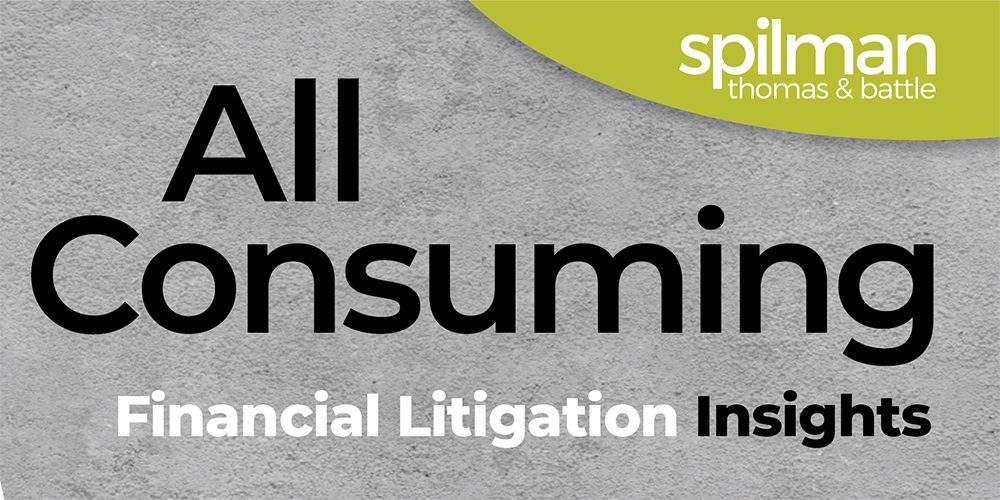Article
Resources
Article
Fourth Circuit Rules Debt Collection Provisions of West Virginia's Consumer Protection Statute Do Not Apply to Transactions Paid for at the Point of Sale

The United States Court of Appeals for the Fourth Circuit recently decided that claims based on Article 2 of the West Virginia Consumer Credit and Protection Act ("WVCCPA"), including claims based on its FDCPA-like debt collection provisions, do not apply to transactions where the consumer pays at the point of sale. In Hinkle v. Safe-Guard Products Int'l, LLC, Hinkle purchased a new car at a local dealership. During the purchase, she also purchased Guaranteed Asset Protection ("GAP") insurance provided by Safe-Guard. The dealership paid the cost of the GAP insurance on Hinkle's behalf and then included the cost in the amount financed for the car. Hinkle later was involved in a car accident. Her auto insurance carrier paid an amount toward Hinkle's outstanding loan balance, but the amount it paid was not enough to pay off that balance because Hinkle had incurred late fees and had delinquent and deferred payments. Hinkle filed a claim with Safe-Guard, but that claim was denied because amounts that she owed due to late fees, delinquent payments, and deferred payments were not included in the "Unpaid Net Balance" Safe-Guard had agreed to pay.
Hinkle sued in federal district court in Charleston, West Virginia, arguing that Safe-Guard was a debt collector who had violated Article 2 of the WVCCPA and also that it had violated the Unfair or Deceptive Acts or Practices provisions in Article 6 of the Act. Safe-Guard moved to dismiss those claims, and the district court granted that motion.
On appeal, Hinkle again argued that Articles 2 and 6 of the WVCCPA applied to her purchase of GAP from Safe-Guard and its subsequent actions. The Fourth Circuit disagreed. Importantly, the Fourth Circuit first addressed whether the provisions of Article 2, including its FDCPA-like debt collection provisions, apply to a transaction where the cost is paid at the point of sale. This issue is important because it addresses head-on an issue that we have faced for years when representing creditors and collectors: whether Article 2 of West Virginia's consumer protection act requires some extension of credit for its provisions to apply. We have maintained for years that Article 2 only applies if there is an extension of credit.
The Fourth Circuit rightly discovered that no West Virginia state court has yet addressed this issue. To unravel the issue, the Fourth Circuit started with the Act's language, including the definition of the word "claim" in the Act's debt collection provisions. Despite the fact that "claim" has been argued for years to be so broad as to be untethered to any limitation, the Fourth Circuit found that its definition when coupled with other terms in the Act means "some duty to pay money must extend beyond the transaction." And, this will depend on nature of the transaction.
Although Hinkle argued that the cost of the GAP insurance was factored into the amount financed, the Fourth Circuit disagreed, finding that there was a one-time payment-in-full made to Safe-Guard on Hinkle's behalf. There was nothing left to pay to Safe-Guard. Thus, no duty to pay money extended beyond the transaction. Without that, Article 2 doesn't apply, and the district court's dismissal was affirmed.
It's worth noting that the Fourth Circuit also addressed whether Hinkle's claim based on the Unfair or Deceptive Acts or Practices provisions in Article 6 of the Act should have been dismissed. It affirmed the dismissal with a lengthy discussion of the reasons why Article 6 doesn't apply to the sale of insurance.
This decision is important because we experience a lack of case decisions explaining West Virginia's consumer protection act. The state has a two-tiered court system, and trial court opinions aren't reported publicly. Thus, it takes a decision of the West Virginia Supreme Court of Appeals or a West Virginia federal court to provide a reported decision interpreting the Act. We have been arguing for years on behalf of creditors and collectors that Article 2 of the Act does not apply to a transaction unless there is an extension of credit. Until now, we have based that argument on the language of Article 2. The Hinkle decision now provides confirmation of this argument.
If you have any questions about this case or other consumer finance issues, please contact our Consumer Finance Practice Group.


